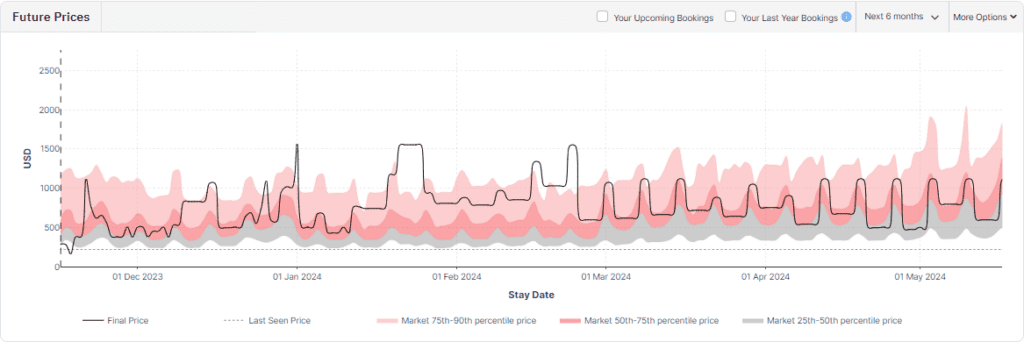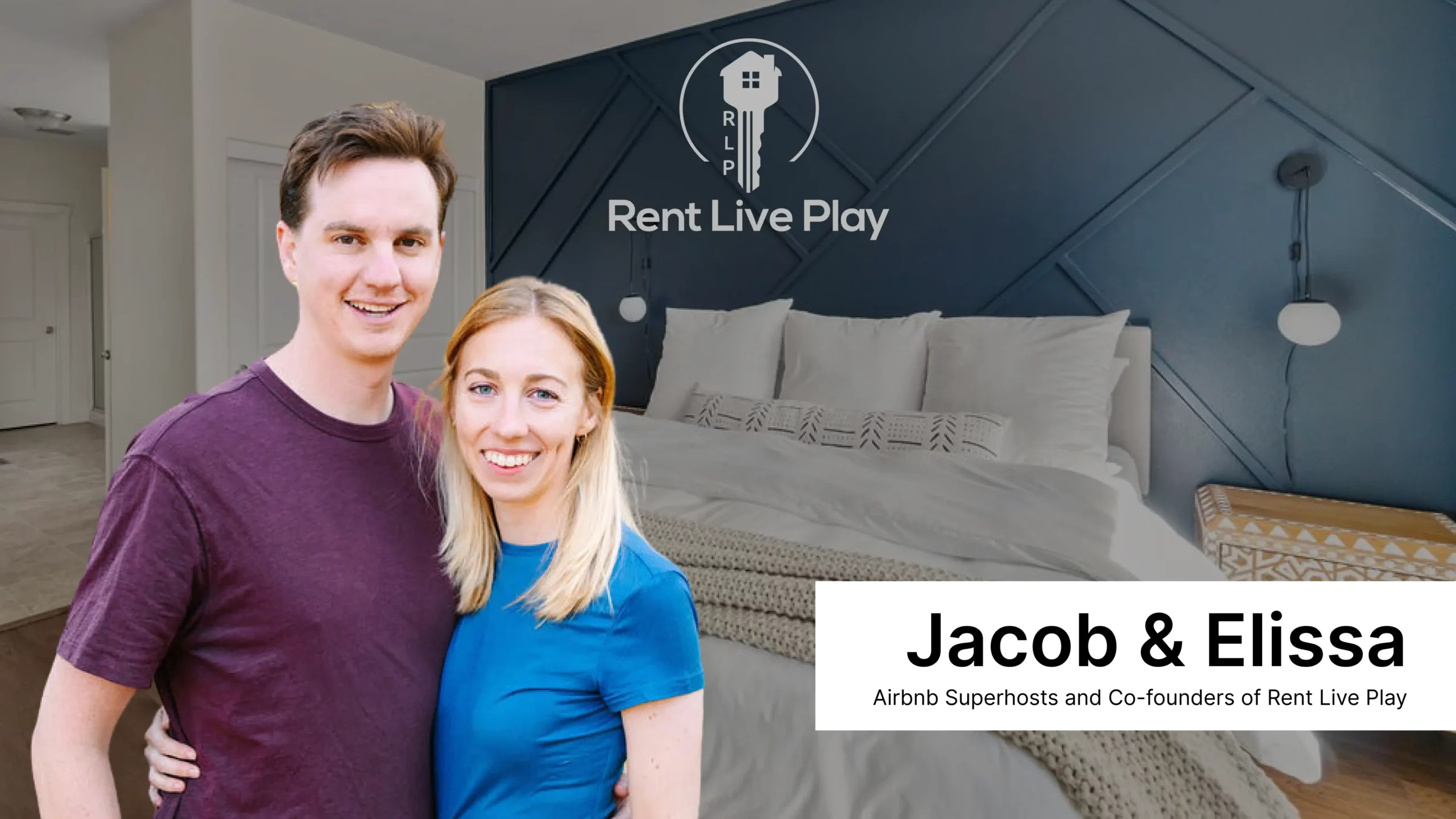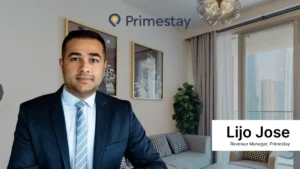Customer type: Host
Region: US
Products: Dynamic Pricing, Market Dashboard
Number of listings: 2
PMS: Hostaway
Executive Summary
Jacob, the co-founder of Rent Live Play, accidentally got into vacation rentals. Recognizing the inefficiencies of manual pricing, he adopted PriceLabs to automate pricing, enhance competitiveness, and optimize revenue. Thanks to consistent bookings, Rent Live Play’s property ranks in the top 1% of Airbnb listings. The pricing setup also led to 25% more occupancy year-on-year. His insights provide valuable guidance for other hosts looking to enhance their pricing strategies and streamline operations.
About Rent Live Play
Rent Live Play offers luxury vacation rentals in the United States. It was founded by Jacob and Elissa who are Airbnb superhosts and Vrbo premier hosts. With a commitment to treating their venture as a full-fledged business, they invested heavily in technology, building a comprehensive tech stack that includes a PMS, a CRM, and PriceLabs. This approach allows them to efficiently manage their properties while remaining competitive in a dynamic market.
Challenges with Manual Pricing and the Need for Dynamic Solutions
Jacob quickly discovered the limitations of manual pricing when he first entered the rental business. “To do manual pricing right, you’d have to be in there daily, adjusting prices and checking competitor data, occupancy levels, and local events. I don’t know anyone who has that kind of time,” he says. Even with a background in data analysis, Jacob found the process time-intensive and prone to revenue gaps. This realization made it clear that a dynamic pricing solution was essential.
“There’s no way to be competitive or successful without it. Pricing and forgetting just doesn’t work if you want consistent bookings,” says Jacob
Optimizing with PriceLabs: Key Strategies
Jacob has fine-tuned his use of PriceLabs to adapt to market demands and optimize his revenue. Here are a few of his key strategies:
- Neighborhood Data: One of the standout features for Jacob is the Neighborhood Data in PriceLabs. He uses this to compare his properties’ pricing with nearby competitors. By tracking local booking trends, he can adjust his prices accordingly and ensure competitiveness. “It helps answer the question—why am I open this weekend when others are booked? I can quickly identify if my pricing is off or if it’s just a slow weekend for everyone.”
- Hyper-Local Pulse Algorithm: Initially, Jacob’s settings were overly complex due to PriceLabs’ previous algorithm. Simplifying his approach with the new Hyper-Local Pulse algorithm has improved his outcomes significantly. “The new algorithm already knows seasonality and demand factors, so I didn’t need to overbuild,” he says. “After clearing out the old settings, I saw a real improvement.”
- Orphan Gaps and Last-Minute Discounts: Jacob’s strategy includes targeting orphan gaps (short stays left between bookings) and last-minute discounts to maximize occupancy. “If I’m not filling those last-minute slots, I’d rather discount and get the booking,” he explains. “It’s worth it in the long run because we collect guest info and remarket to them for future direct bookings.”
- Strategic Advertising for High-Demand Events: For major events like Tucson’s popular Gem Show, Jacob uses PriceLabs to stay ahead of booking trends and align his pricing with demand. He also places advertisements during these events, driving direct bookings to avoid commissions on booking platforms. This approach allows him to set his rates based on what his guests are willing to pay, without having to compete directly with other hosts.

Advice to Other Hosts Using PriceLabs
Jacob offers these best practices for hosts aiming to succeed with PriceLabs:
- Watch Tutorials: Look at the available training tutorials and attend live trainings. You learn about new things that you wouldn’t have thought of.
- Use Neighborhood Data: Keep an eye on competitor data in PriceLabs to make sure you are not missing out on potential bookings.
- Avoid Over-Customization: The Hyper-Local Pulse algorithm already adjusts for market changes; avoid excessive seasonal adjustments. “I learned that simpler settings worked better, especially with the new algorithm,” says Jacob.
- Optimize Orphan Gaps and Last-Minute Discounts: Set discounts on shorter gaps and last-minute bookings to ensure steady occupancy.
- Leverage Direct Booking Opportunities: When possible, target high-demand events with advertising to drive direct bookings and avoid competition on larger platforms.
- Treat Rentals as a Business: Jacob stresses that using a PMS and investing in technology is essential for competing in the short-term rental market. “To compete with larger operators, you need to treat this like a business, not a side hobby,” he advises.






